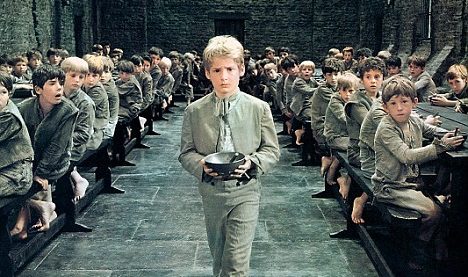It became immediately apparent to senior executives of JP Morgan Chase upon their arrival at work Monday morning that their day would be different, when they were greeted in the boardroom by JP Morgan, who had been dead for the past 100 years.
There was no mistaking him, standing before his portrait: the massive shoulders, piercing eyes, enormous nose—although his was purple with rosacea, clusters of pits and nodules no artist would paint if he expected to get paid.
“Gentlemen,” he grinned. “I must have dozed off. And to awaken in such a wondrous era! This building made of glass! Flying vehicles overhead! Cronuts!” he snapped off a huge bite, dusting his moustache with the flaky pastry.
“Now,” his demeanor changed instantly, “What the hell is going on here?”
“You mean the ‘London Whale’ thing?” one of the partners waved dismissively. “Relax. We’ll pay a fine, admit no wrongdoing. Business as usual.”
“Here’s how I relax!” Morgan boomed, grabbing the partner in a headlock and gleefully dropping him to his knees. “Who else wants to join me in some manly wrestling?”
The others backed off, sheepishly murmuring “Not me! / I’m cool. / All good here!”
“Besides besmirching my good name,” he glared, “You gentlemen lost six billion dollars. How is such a thing possible?”
“Things are significantly more complex in today’s financial world,” a senior partner condescended with a sneer that quickly vanished when Morgan punched him in the face.
“Nonsense!” he boomed. “Good business is good business. Railroads, steel, newspapers—”
“God help us,” one of the partners muttered under his breath, and another chuckled.
“May He help you indeed!” Morgan grinned, grabbing them by the hair and conking their heads together. “Perhaps I expressed myself poorly. What I mean are the fundamentals of investing—capitalizing a well-researched asset with the expectation of appreciation,” he set fire to one of his Havana Hercules Club cigars. “At as little risk as possible, of course.”
The men tried to stifle laughter. “There’s no smoking in here,” one told Morgan, who promptly stubbed out his cigar in his face.
“The goal is always to find undervalued assets,” Morgan argued, “and give them what they need to grow. I funded the purchase of the New York Times when it was floundering—”
“Fucking Krugman,” they moaned, almost in unison.
“I financed Tom Edison’s Electric Illuminating company,” Morgan continued, “and arranged the merger that formed General Electric. Did you know my Madison Avenue mansion was the first electrically lit private residence in New York?”
“We still like energy. We funded Enron.”
“Ix-nay on the nron-ay…”
“I admit, there are things I fail to understand,” Morgan watched one of the executives poke at his smartphone. “So, please, gentlemen. Bring me up to speed on our current investment strategies.” He took his seat at the head of the table as the others slunk to their chairs, grateful to be beyond reach for the moment.
“We love credit default swaps—an agreement by the seller to compensate the buyer in the event of default…”
“No sane businessman would agree to such a thing!” Morgan stuttered, appearing, for the first time, confused. The men around the table laughed condescendingly, and pressed on.
“We made a boatload off mortgage-backed securities,” another added. “Bundling toxic residential and commercial mortgages as financial instruments, and selling them off.”
“Pure crap,” another interjected. “Bad sub-prime loans to borrowers who didn’t have a prayer of paying them off.”
“Why would a banker make a loan they know cannot be repayed?”
“Because we knew we could bundle it into something unrecognizable, sell it, and make it someone else’s problem,” he high-fived the nearest person.
“Our hedge fund unit is one of the biggest in the country.”
“You fund hedges?”
The others guffawed, and Morgan reached for the throat of the man nearest him, just missing. “Don’t forget derivatives,” he taunts, “which actually have no intrinsic value of their own.”
“The world has gone mad while I slumbered!” Morgan declared.
“We must be doing something right. We’re worth 2.5 trillion dollars.”
“And what do you do with all your wealth? I funded hospitals, museums, universities. Collected fine art, and gemstones.”
“Jimmy collects classic cars,” one of them offered, and Jimmy appeared pleased.
“Bob collects ex-wives,” another remarked, and they all laughed, even Bob. The laughter stopped instantly when Morgan produced a vintage handgun, slamming it on the table.
“My name is on this building,” he reminded them.
“Get over yourself,” the man nearest Morgan sneered, and when Morgan reached for the back of his neck to slam his face into the table, he reached for the gun and shot Morgan in the head.
As Morgan’s blood pooled on the table, they gathered around him.
“I know a guy who can make this go away.”
“Right, like we all don’t know a guy.”
“Let’s not argue—gentlemen!” They laughed and high-fived, and posed for pictures with JP’s body until one of them declared, “Let’s make some money,” and they went back to their workday.
